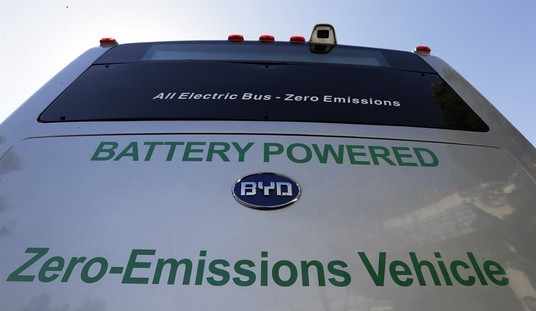Jim Geraghty explains that even a stopped clock gets it right twice a day, and perhaps a Democratic President can accidentally land on the right answer occasionally. He thinks Barack Obama made the right decision by appointing a cybersecurity “czar” to protect the nation’s electronic-information infrastructure. In an essay for National Review, Jim warns that the threat is real and that the US is dangerously exposed:
President Obama’s Friday appearance announcing the creation of a cyber-security coordinator was not the smoothest rollout of a presidential initiative. But if a broken clock can be right twice a day, a Democratic president can be right once in a while, and when thinking about the new cyber czar, conservatives ought to keep four points in mind:
(1) The threat is real. It is fair game for folks on the right to question some of the rhetoric Obama used in describing the need for this new position. But cyber-warfare is, generally speaking, more controllable than a biological weapon, doesn’t run afoul of as many established treaties as a chemical weapon, is nowhere near as expensive and visible as a nuclear weapon, and is much harder to attribute than conventional terrorism. It is another asymmetrical tool that allows weaker countries and groups to play on the same field as the big boys. …
(2) The position is needed. John McCain can chuckle that Obama has more czars than the Romanovs, and if citizens of a republic object to the title “czar,” fine. But there needs to be someone focused specifically on this issue who isn’t impeded by the traditional jurisdictional wrangling.
(3) Current policymakers are not fluent in this world. President Obama may use a special Blackberry, but the world of cyber security is as new to him as it is to most of us. You could see this in his expression as he discussed the “whole new vocabulary” required “just to stay ahead of the cyber criminals who would do us harm — spyware and malware and spoofing and phishing and botnets,” and also in his gaffe (or Freudian slip?) that the CIA handled the response when “hackers gained access to [his campaign] e-mails and a range of campaign files, from policy position papers to travel plans.” …
(4) The cyber-security adviser doesn’t have to be a “big name.” One of the safest comments in response to Friday’s announcement was that the new cyber-security coordinator ought to be a figure with “national stature.”
I agree that the threat is real, and will get more significant as more nations make the Internet more widely available. It’s simultaneously a symmetric and an asymmetric threat, which makes it even more difficult to counter, and the shifting nature of the potential attackers complicates it even more. The argument for a national coordinated effort is both rational and compelling.
However, where we differ is on point two. Jim says that the problem of jurisdiction keeps us from having a coordinated defense policy, and that Obama essentially has no choice but to appoint a super-regulatory czar to trump the organizational structure of the federal government. In the constitutional form of government, though, that is not the executive’s decision to make. Congress can authorize a reorganization of bureaucracies and jurisdictions, with the President’s approval. We last saw the example of the post-9/11 Commission reorganization of American intelligence which resulted in the czar-like position of the Director of National Intelligence (DNI). The difference is that the DNI remains accountable to both Congress and the White House, as does the organization under him.
The use of czars bypasses the criticial legislative oversight on the mechanics of government. It aggregates power by siphoning off authority from Congressionally-mandated functions of the federal government into single offices with accountability only to the President. Obama didn’t invent “czars” in American government, but he’s exponentially expanding their use, and thus far a complacent and unwitting Congress hasn’t bothered to ask why Obama doesn’t just ask them to reorganize these jurisdictions instead of going through the power-grab that “czarring” represents.
We don’t need czars in American government. We need more accountability, not less, and we need a federal government that is less autocratic, not more. Instead of appointing czars, we should demand that Obama and Congress get the job done right, redraw jurisdictions to meet the needs of Americans now, and keep everyone completely accountable while doing so.








Join the conversation as a VIP Member